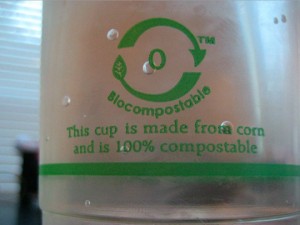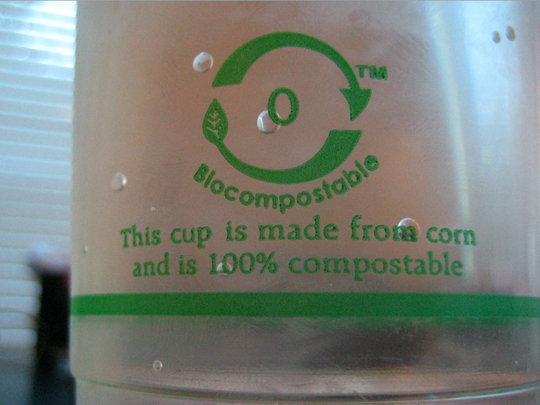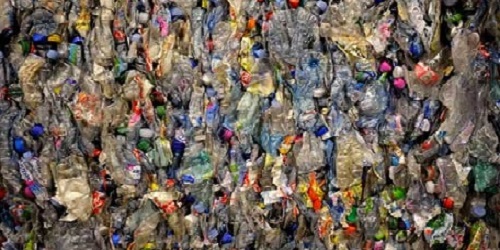“Compostability”:

The US Federal Trade Commission has issued a revised version of its “Green Guide” which warns against making deceptive environmental claims. The FTC has power to prosecute in such cases. The FTC says at 260.7(a) that “It is deceptive to misrepresent, directly or by implication, that a product or package is compostable.”
The FTC had two main concerns. The first was the limited availability of industrial composting facilities, and they warned against claims for compostability if such facilities were not available to a substantial majority of consumers where the item was sold. The second related to the performance of “compostable” plastics in home and industrial composting. The FTC added that it was not sufficient to show that a test item had complied with ASTM D6400 or D6868, because those standards “likely do not typify compost facility operations nationwide. (Page 114 in the guide) Rather, they reflect “optimum [operating] conditions and ignore wide variation in actual facility operations.”
“Renewable materials”:
Compostable plastics are often marketed as made from renewable materials, but the FTC said (260.16). that “It is deceptive to misrepresent, directly or by implication, that a product or package is made with renewable materials.”
Consumers may be misled by claims of renewability unless they are advised that substantial amounts of non-renewable resources (fossil fuels) are used in the agricultural production process and the polymerisation process of bio-based plastics.
With regard to landfill, Para. 260.7 (c) (2) says that “marketers should qualify claims if the claim misleads consumers about environmental benefit when the item is disposed of in a landfill.” Consumers may be deceived if the marketer does not draw attention to the fact that bio-based plastics can generate methane deep in landfill and that methane is a dangerous greenhouse gas.
In conclusion – what is the point of bio-based or “compostable” plastics if they cannot be made into compost (only into CO2 gas), if they should not be sent to landfill (because they generate methane), if they cannot be recycled with ordinary plastic, if they are not really renewable, if they use scarce land and water resources, and if they are more expensive and less versatile?
The revised version of the FTC’s Green Guide is available on: www.ftc.gov/os/fedreg/2012/10/






